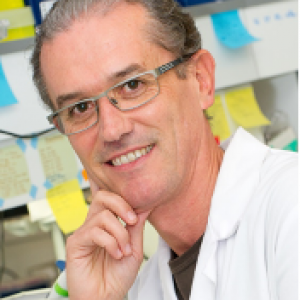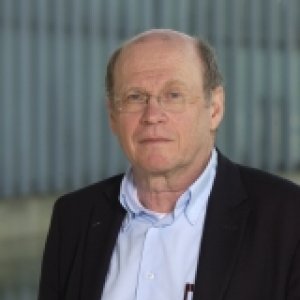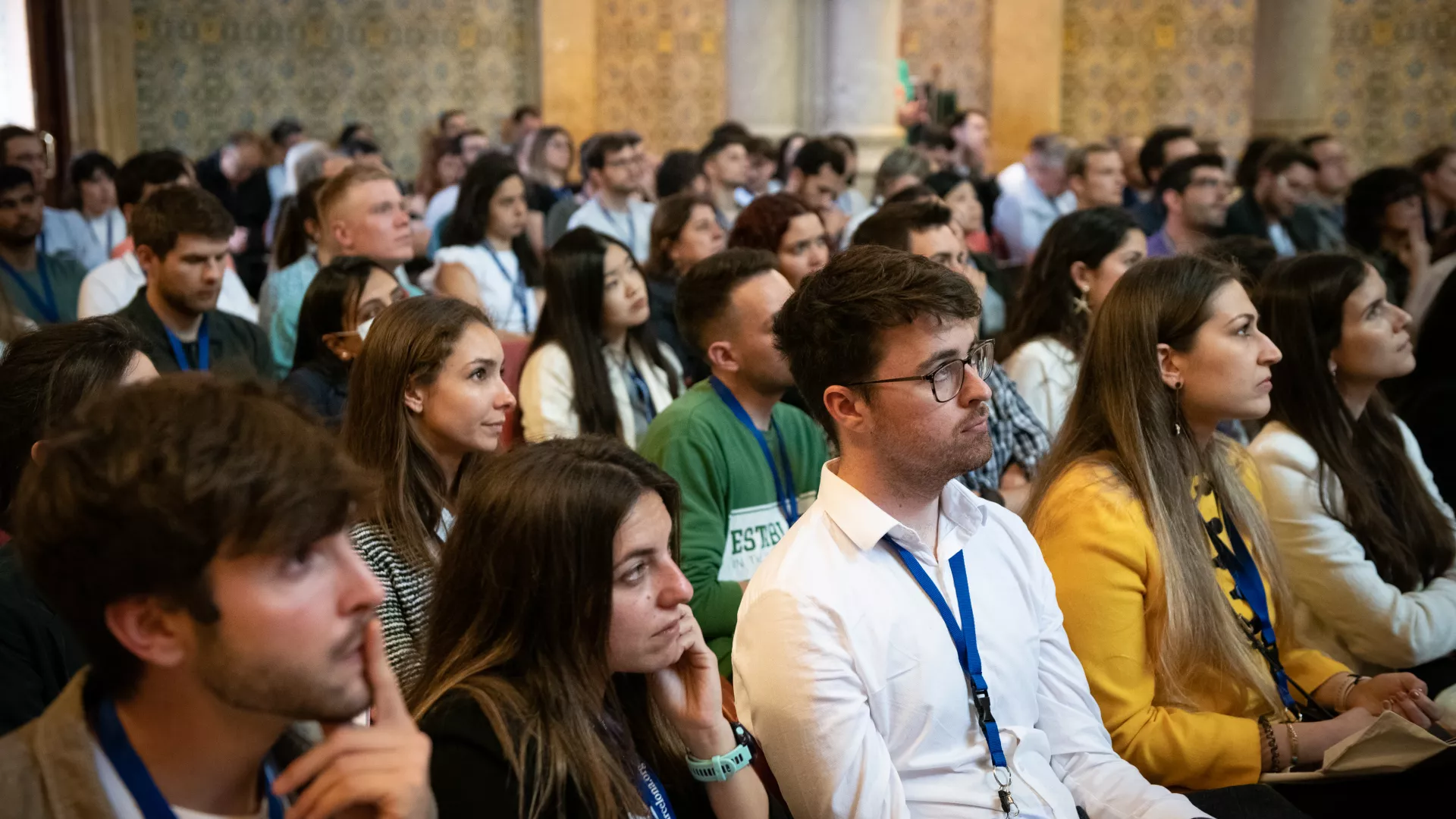Cancer is the second leading cause of death worldwide, and a problem that escalates in an aging population. Although significant progress has been made in understanding the genetic and epigenetic determinants of cancer, little attention has been paid to post-transcriptional regulation of gene expression. The process of mRNA translation shapes the proteome and plays an essential role in the reprogramming of cancerous cells, holding the promise of novel anti-cancerous therapies. This conference will bring together basic experts working at the interphase of translation, cancer progression and microenvironment interactions, including basic research on post-transcriptional mechanisms, animal models and novel technologies, with the aim to provide a stimulating environment and illuminate discovery in this innovative field.
Presentation
Conference organizers

Dr. Raúl Méndez
IRB Barcelona/ ICREA
Barcelona, Spain

Dr. Alexandre David
IGF
Montpellier, France

Dr. Fátima Gebauer
CRG
Barcelona, Spain

Dr. Georg Stoecklin
Heidelberg University & ZMBH
Mannheim, Germany
Organized in colaboration with:

There is no registration fee for this conference, but the number of participants is limited, with a number of seats saved for IRB Barcelona alumni. Previous registration is required.
Participants are invited to submit abstracts, a number of which will be selected for short talk and poster presentations. Abstracts should include a title, authors, affiliations, summary (max 250 words) and references
REGISTRATION DEADLINE: 12 SEPTEMBER, 2022
Programme
Monday, 17 October
8.30 Registration
9.00 Welcome by Dr. Francesc Posas (IRB Barcelona, Director) and organizers (Dr. Raúl Méndez, Dr. Alexandre David, Dr. Fátima Gebauer, Dr. Georg Stoecklin)
Session 1: Mechanisms of tumoral translational reprogramming
Chair: Dr. Raúl Méndez
9.15 Targeting translation in both tumor and stroma prevents metastatic progression
Dr. Nahum Sonenberg, Goodman Cancer Research Center, McGill University (Montreal, Qc, Canada)
9.50 DAP5/eIF3d directs alternative cap-dependent translation of mRNAs that program breast cancer tissue invasion, metastasis and resistance to anoikis
Dr. Robert J. Schneider, NYU School of Medicine (New York, NY, USA)
10.25 Short talk 1: When the non-coding codes: Mining the Microproteome for New Players in Cancer Cell Plasticity
Dr. Maria Abad, VHIO (Barcelona, Spain)
10.40-11.15 Coffee break and poster session
11.15 Mechanistic Insights into Translation Re-initiation
Dr. Aurelio Teleman, German Cancer Research Center- DKFZ (Heidelberg, Germany)
11.50 Translational buffering and codon bias in cancer
Dr. Luc Furic, Peter MacCallum Cancer Centre (Melbourne, Australia)
12:25 Measuring translational control in dynamic systems: the p53 response as a test case
Dr. Georg Stoecklin, Medical Faculty Mannheim, Heidelberg University (Mannheim, Germany)
13.00 Short talk 2: RNA binding proteins modulate the splicing programs required for DNA damage detection and repair during B cell development
Dr. Manuel D. Diaz-Muñoz, Toulouse institute for infectious and inflammatory diseases (INFINITy), Inserm (Toulouse, France)
13.15-15.00 Lunch and poster session
Session 2: RBPomes in cancer
Chair: Dr. Alexandre David
15.00 Alterations in the RNA binding protein landscape are required for efficient growth of malignant pleural mesothelioma
Dr. Anne Willis, MRC Toxicology Unit (Leicester, UK)
15.35 RNA-binding proteins in cancer progression
Dr. Fátima Gebauer, CRG (Barcelona, Spain)
16.10-16.40 Coffee break and poster session
16.40 Posttranscriptional regulation of the cancer genome & its therapeutic implications
Dr. Davide Ruggero, University of California San Francisco (San Francisco, CA, USA)
17.15 Short talk 3: tRNA-dependent translation reprogramming in resistant melanoma
Dr. Najla El-Hachem, GIGA Institute (Uliege, Belgium)
17.30 Short talk 4: Differential Initiator Ternary Complex availability drives distinct translational programs
Dr. Chiara Giacomelli, CRUK Beatson Institute (Glasgow, UK)
17.45 Short talk 5: Translatome-based classification reveals metabolic dependencies of a new tumor subtype of pancreatic cancer
Dr. Yvan Martineau, Cancer Research Center of Toulouse–Inserm (Toulouse, France)
18.00 End of session
Tuesday, 18 October
Session 3: Translational control in the tumoral niche
Chair: Dr. Fatima Gebauer
9.00 A Rapid Translational Immune Response Program in CD8 T Lymphocytes
Dr. Hans-Guido Wendel, Memorial Sloan Kettering Cancer Center (New York, NY, USA)
9.35 Eif4a2 is essential in B cells for the germinal centre response and humoral immunity
Dr. Martin Turner, Babraham Institute (Cambridge, UK)
10.10 Short talk 6: Translational landscape of MAPK signaling in high-grade serous ovarian cancers
Dr. Virginie Mieulet, Toulouse Institute for Infectious and Inflammatory diseases-Inserm (Toulouse, France)
10.25 Short talk 7: eIF6 phosphorylation in Serine235 is necessary for cancer cells metabolic reprogramming and tumor growth
Dr. Annarita Miluzio, National Institute of Molecular Genetics, INGM (Milan, Italy)
10.40-11.10 Coffee break and poster session
11.10 Translation programs in cancer-associated cells associate with cancer initiation and progression
Dr. Ola Larsson, Karolinska Institutet (Stockholm, Sweden)
11.45 T cell effector function by RNA binding proteins in health and disease
Dr. Monika Wolkers, Sanquin Research (Amsterdam, The Netherlands)
12.20 Antitumor T cell function requires CPEB4-mediated adaptation to chronic endoplasmic reticulum stress
Dr. Raúl Méndez, IRB Barcelona/ICREA (Barcelona, Spain)
12.55 Short talk 8: Loss of CPEB4 in breast cancer cells enhances lung metastasis by IL-23/IL-17 axis up-regulation and neutrophil expansion
Dr. Alba Millanes-Romero, IRB Barcelona (Barcelona, Spain)
13.10-15.00 Lunch and poster session
Session 4: Ribosomes in cancer
Chair: Dr. Georg Stoecklin
15.00 Linking nucleolar function to stem cell activity in colorectal cancer
Dr. Eduard Batlle, IRB Barcelona/ICREA (Barcelona, Spain)
15.35 A specialized translation program in quiescent leukemic cells, promotes tumor survival
Dr. Shobha Vasudevan, Shobha Vasudevan, Massachusetts General Hospital (Boston, MA, USA)
16.10 Short talk 9: Glucose deprivation and impaired N-glycosylation activate the Integrated Stress Response that leads to LIF secretion and tumor angiogenesis
Dr. Cristina Muñoz-Pinedo, IDIBELL (Hospitalet de Llobregat, Barcelona, Spain)
16.25-17.00 Coffee break and poster session
17.00 The hidden face of 5-Fluorouracil: alteration of ribosome functions favors cancer cell drug-tolerance
Dr. Jean Jaques Diaz, Cancer Research Center of Lyon (Lyon, France)
17:35 How ribosomal protein mutations translate disease
Dr. Kim De Keersmaecker, KU Leuven (Leuven, Belgium)
18.10 Short talk 10: eIF4A2-dependent translation shapes tumour microenvironment and regulates lung and liver tumorigenesis
Dr. Luis Pardo-Fernández, CRUK Beatson Institute (Glasgow, UK)
18.25 End of session
20.30 Speakers dinner (Restaurant Can Pineda) (Sant Joan de Malta, 55)
Wednesday, 19 October
Session 5: Translational control of metabolism in cancer as therapeutic targets
Chair: Dr. Anne Willis
9.00 Translational Control of Metabolism: A Self-Amplifying Loop Necessary for Lipid Synthesis and Malignancy
Dr. Stefano Biffo, INGM "Romeo ed Enrica Invernizzi", University of Milano (Milano, Italy)
9.35 mRNA translation and the resistance to anti-cancer targeted therapies
Dr. Stéphan Vagner, Institut Curie (Paris, France)
10.10 Short talk 11: Long non-coding RNA Neat1 and paraspeckle components are translational regulators in hypoxia
Dr. Anne-Catherine Prats, Inserm- Université de Toulouse (Toulouse, France)
10.25-11.00 Coffee break and poster session
11.00 A story of serendipity: The aminoglycoside streptomycin triggers ferroptotic cell death of tumor initiating cells
Dr. Alexandre David, Institut de Génomique Fonctionnelle (Montpellier, France)
11.35 Sloppiness in mRNA translation in cancer
Dr. Reuven Agami, The Netherlands Cancer Institute (Amsterdam, The Netherlands)
12.10 Short talk 12: Oncogenic MYC sustains LARP1 levels to stimulate RP mRNAs expression and translation
Dr. Flavia Iannizzotto, IDIBELL (Barcelona, Spain)
12.25 Short talk 13: Ribosome impairment regulates intestinal stem cell identity via ZAKa activation
Dr. Joana Silva,The Netherlands Cancer Institute (The Netherlands, Amsterdam)
12.40 Short talk 14: Human dyskerin binds to cytoplasmic H/ ACA-box-containing transcripts affecting nuclear hormone receptor dependence
Dr. Federico Zacchini, University of Bologna (Bologna, Italy)
13.00 Concluding remarks and end of conference
Venue
The BARCELONA BIOMED CONFERENCE Translation control in cancer development and microenvironment interactions will be placed at the Casa Convalescència in the heart of Barcelona. Talks will take place in the Aula Magna.
Casa Convalescència
C/ Sant Antoni Maria Claret, 171
08041 Barcelona
Tel +34 934 335 000
www.uab-casaconvalescencia.org
How to reach the Casa Convalescència:
Underground
Yellow line (L4) - GUINARDÓ – HOSPITAL DE SANT PAU station
Blue line (L5) - SANT PAU – DOS DE MAIG station
By bus
Lines: 15, 19, 20, 45, 47, 50, 51, 92 and 192.
For the GPS
Introduce the following coordinates:
Latitude: 41.413702 (41° 24' 49.33'' N)
Longitude: 2.177482 (2° 10' 38.94'' E)
From the airport
* Train + Underground. At the RENFE station, take the train to Sants-Estació. Once there take the Underground's blue line (L5) till SANT PAU – DOS DE MAIG station.
* Bus + Underground. Outside the airport terminal, take the AEROBUS to Plaça Catalunya. Walk one corner till Plaça Urquinaona and take the Underground's yellow line (L4) to GUINARDÓ – HOSPITAL DE SANT PAU station.
Barcelona Metropolitan Transport webiste (with metro and bus maps)
Accomodation
Speakers will be lodged at the Hotel Catalonia Atenas
Av. Meridiana, 151
08026, Barcelona
Telephone: +34 93 232 20 11
e-mail: catalonia@cataloniahotels.com
www.hoteles-catalonia.com
Other hotels
A list of additional hotels within walking distance of the Casa Convalescència can be found at: https://www.barcelona-tourist-guide.com/en/hotels/hotelmaps/eixample-right-barcelona-hotel.html
(The Casa Convalescència is located near the violet point 27/3 star). Rates will vary depending on choice of hotel and season. Please check with the hotel of your choice directly for the best offer.
Residences
Another possibility is the Lesseps Residence Hall, and is available for short-term stays.
Lesseps Residence Hall
Plaza Lesseps, 12 08023 Barcelona
View on map
Telephone: +34 933 941 600
e-mail: lesseps@resa.es
www.resa.es/en/city/barcelona
Participants registered for events in the Barcelona BioMed series should contact the hotels and residences directly to arrange bookings and payment.
Speakers

Dr. Reuven Agami
The Netherlands Cancer Institute
Amsterdam, The Netherlands

Dr. Eduard Batlle
IRB Barcelona/ ICREA
Barcelona, Spain

Dr. Stefano Biffo
INGM "Romeo ed Enrica Invernizzi", University of Milano
Milano, Italy

Kim De Keersmaecker
KU Leuven
Leuven, Belgium

Dr. Jean Jacques Diaz
Cancer Research Center of Lyon
Lyon, France

Dr. Luc Furic
Peter MacCallum Cancer Centre
Melbourne, Australia

Dr. Ola Larsson
Karolinska Institutet
Stockholm, Sweden

Dr. Davide Ruggero
University of California San Francisco
San Francisco, CA, USA

Dr. Robert J. Schneider
NYU School of Medicine
New York, NY, USA

Dr. Nahum Sonenberg
Goodman Cancer Research Center, McGill University
Montreal, Qc, Canada

Dr. Aurelio Teleman
German Cancer Research Center- DKFZ
Heidelberg, Germany

Dr. Martin Turner
Babraham Institute
Cambridge, UK

Dr. Stéphan Vagner
Institut Curie
Paris, France

Dr. Shobha Vasudevan
Massachusetts General Hospital
Boston, MA, USA

Dr. Hans-Guido Wendel
Memorial Sloan Kettering Cancer Center
New York, NY, USA

Dr. Anne Willis
MRC Toxicology Unit
Cambridge, UK

Dr. Monika Wolkers
Sanquin Research
Amsterdam, The Netherlands
Poster


